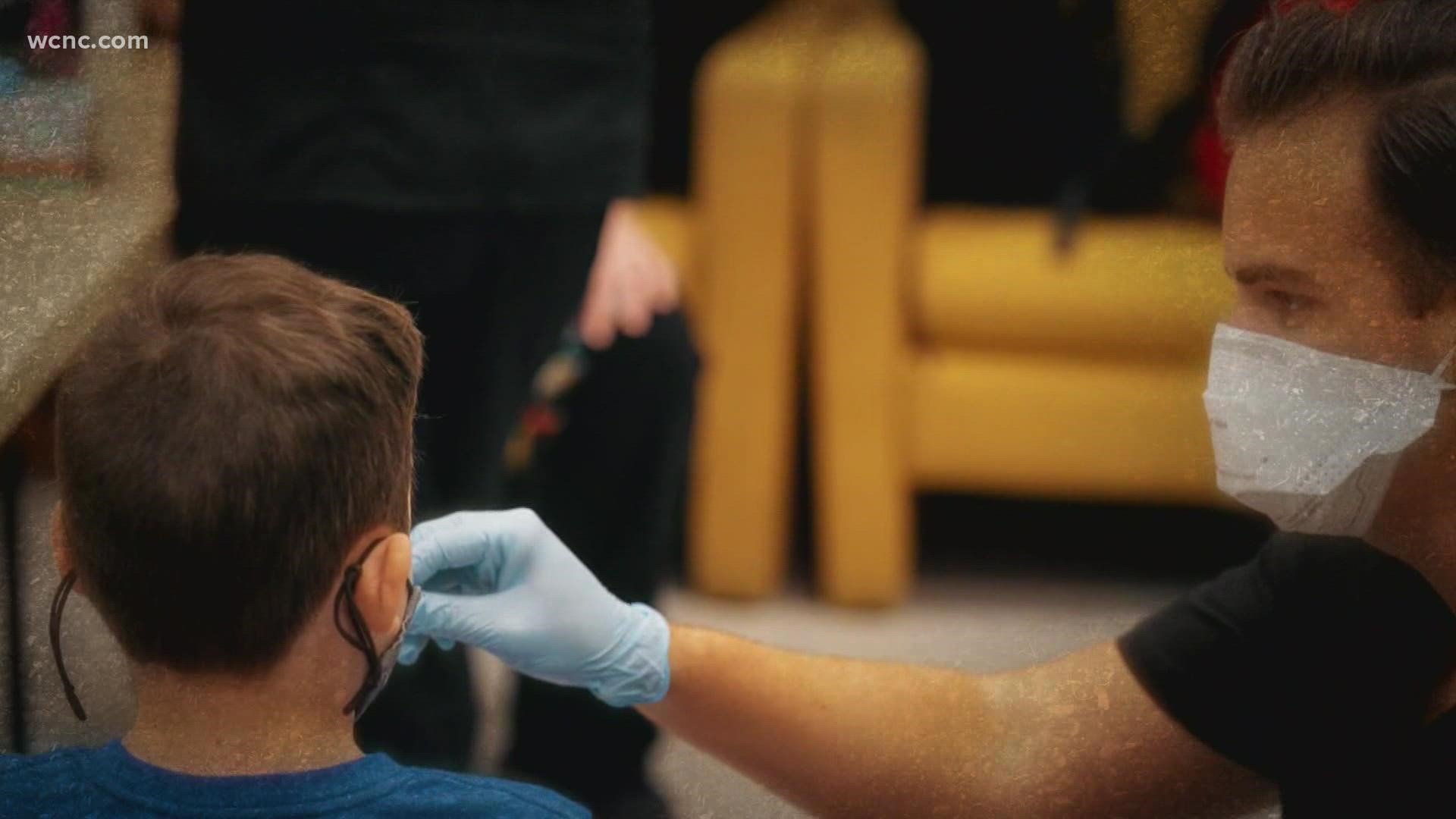CHARLOTTE, N.C. — The omicron variant now accounts for 98% of all new COVID-19 infections, and it's infecting thousands of people every day in the Carolinas, according to new estimates from the Centers for Disease Control and Prevention (CDC).
But experts now say the symptoms of omicron could be different for adults and kids. While it seems to be milder for most people so far, doctors say the symptoms to look for in kids can be a lot different than adults.
A study from Discovery Health, the largest health insurer in South Africa, found the most common omicron symptoms are nasal congestion, sore or scratchy throat, dry cough and lower back pain.
RELATED: 'A very strange symptom': Expert says more people are reporting this symptom of the Omicron variant
"In adults, a lot more sore throat, a lot more cough," Dr. Amina Ahmed with Levine Children's Hospital, said. "Even though we're hearing about more mild cases, these people are getting sick."
Dr. Sam Dominguez, a pediatric infectious disease doctor at Children's Hospital Colorado, says it's not surprising more kids are getting COVID-19.
"Omicron is so much more transmissible than the delta variant that so many more children are getting exposed and infected that that results in an absolute more number of kids getting infected," Dominguez said.
But omicron is affecting some kids in a new way. Doctors report saying a barking cough, which is often a telltale sign of croup.
"In children what we're seeing is a croup-like presentation, and croup is really inflammation of the upper airways as opposed to the lower airways, like your lungs," Ahmed said.
Doctors say kids' airways are smaller than adults', so it takes less inflammation to clog them. However, there's a common symptom of COVID-19 that isn't as common with omicron.
"The loss of sense of smell and taste that we saw a lot with delta and alpha is not a predominant symptom of omicron," Ahmed explained.
Discovery Health's study found that the risk of severe disease or hospitalization from omicron is also lower than other variants.
Contact Ben Thompson at bthompson@wcnc.com and follow him on Facebook, Twitter and Instagram.
WCNC Charlotte is part of seven major media companies and other local institutions reporting on and engaging the community around the problems and solutions as they relate to the COVID-19 pandemic. It is a project of the Charlotte Journalism Collaborative, which is supported by the Local Media Project, an initiative launched by the Solutions Journalism Network with support from the Knight Foundation to strengthen and reinvigorate local media ecosystems. See all of our reporting at charlottejournalism.org.

